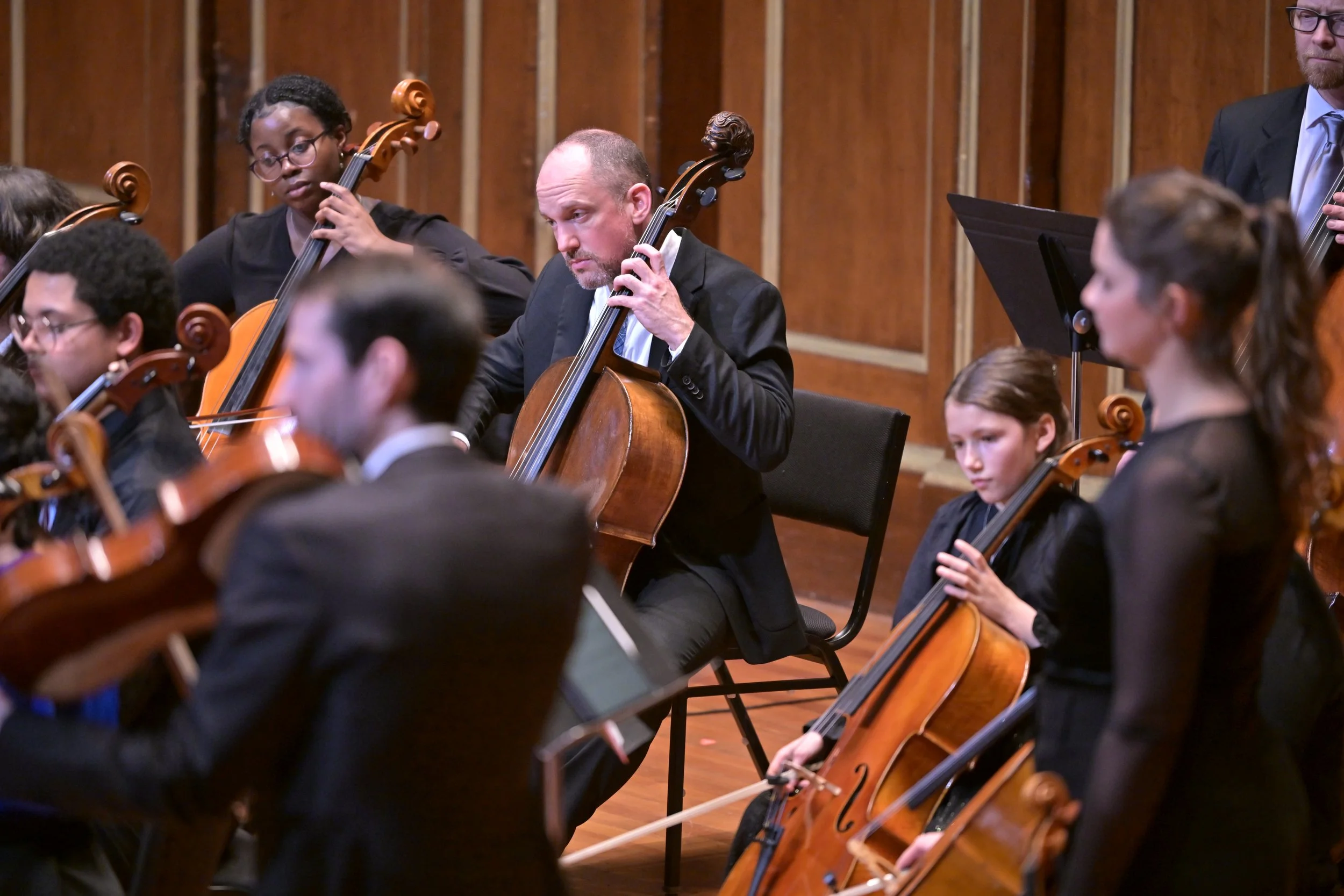cellist
Annie Rabbat
Gardner Museum
Get Involved
On The Road
Heartbeats
Season Eight
2014-2015
Join A Far Cry as we "Look Inside" throughout Season Six - our biggest, most ambitious season ever... by far! The Criers invite you to become a subscriber for the unbelievably-affordable price of $85 for SIX concerts. Becoming a subscriber brings other perks, as well:
- Reserved seats: the best in the house, in both Jordan Hall and St. John's Episcopal Church
- Subscriber Discount of 10% on additional individual tickets
- Can't make it to the concert? Exchange your tickets.
- Personal invitations to special events
- Official entrance into the A Far Cry family - we can't wait to meet you!
Season Six Subscription Series
Dreams and Prayers
A Far Cry in Jamaica Plain September 8 2012 4pm St. John's Episcopal Church, Jamaica Plain, MA
- Hildegard von Bingen: The Origin of Fire
- Golijov: Dreams and Prayers of Isaac the Blind
- *Sanlikol: Vecd
- Beethoven: Heiliger Dankgesang, from Quartet op. 132
-
featuring David Krakauer, clarinet
Fiddlers
A Far Cry in Jamaica Plain December 8 2012 4pm St. John's Episcopal Church, Jamaica Plain, MA
- Rautavaara: Pelimannit
- Vivaldi: Concerto for Four Violins in D
- Piazzolla: Two Tangos
- Bartok: Romanian Dances
- Walton: Sonata for Strings
Long Gaze
A Far Cry in Jordan Hall January 11 2013 8pm New England Conservatory, Boston, MA
- *McDonald: Gentle but Uneasy Dance Music
- Britten: Les Illuminations
- Webern: String Quartet (1905)
- Weill: Songs
-
featuring Kristen Watson, soprano; Zachary Wilder, tenor
-
featuring Kristen Watson, soprano; Zachary Wilder, tenor
Patchwork
A Far Cry in Jamaica Plain February 9 2013 4pm St. John's Episcopal Church, Jamaica Plain, MA
- Shostakovich: Two Pieces for String Octet
- Multiple: Variations on an Elizabethan Theme
- Boccherini: Night Music of the Streets of Madrid
- *Hearne: Glasshouse
After Dark
A Far Cry in Jamaica Plain April 20 2013 4pm St. John's Episcopal Church, Jamaica Plain, MA
- Mozart: Eine Kleine Nachtmusik
- Vivaldi: Flute Concerto Op. 10 No. 2
- Saariaho: Nymphéa Reflection
- Borodin: String Quartet No. 2, Nocturne
-
featuring Paula Robison, flute
Vienna Postcards
A Far Cry in Jordan Hall May 24 2013 8pm New England Conservatory, Boston, MA
- Mozart: Symphony No. 40
- Bruckner: String Quintet in F, Adagio
- Schubert: Symphony No. 5
...are you convinced? Become a subscriber today!
Season Six Gardner Series
In addition to our subscription series of concerts in Jordan Hall and St. John's Episcopal Church, A Far Cry will continue its residency at the Isabella Stewart Gardner Museum, performing six concerts at stunning new Calderwood Hall:
Dreams and Prayers
A Far Cry at the Gardner Museum September 9 2012 1:30pm Boston, MA
- Hildegard von Bingen: The Origin of Fire
- Golijov: Dreams and Prayers of Isaac the Blind
- *Sanlikol: Vecd
- Beethoven: Heiliger Dankgesang, from Quartet op. 132
-
featuring David Krakauer, clarinet
Subtraction
A Far Cry at the Gardner Museum December 6 2012 7pm Boston, MA
- Cage: Imaginary Landscape No. 4 for 12 radios
- Cage: String Quartet in Four Parts
- Cage: 4'33"
- Schnittke: Moz-Art à la Haydn
- Haydn: Symphony No. 45, "Farewell"
Fiddlers
A Far Cry at the Gardner Museum December 9 2012 1:30pm Boston, MA
- Rautavaara: Pelimannit
- Vivaldi: Concerto for Four Violins in D
- Piazzolla: Two Tangos
- Bartok: Romanian Dances
- Walton: Sonata for Strings
Patchwork
A Far Cry at the Gardner Museum February 10 2013 1:30pm Boston, MA
- Shostakovich: Two Pieces for String Octet
- Multiple: Variations on an Elizabethan Theme
- Boccherini: Night Music of the Streets of Madrid
- *Hearne: Glasshouse
Folly
A Far Cry at the Gardner Museum April 4 2013 7pm Boston, MA
- *Liu: Arise
- Geminiani: Concerto Grosso No. 12 in D, "La Folia"
- Dean: Carlo
- Bates: Icarian Rhapsody
After Dark
A Far Cry at the Gardner Museum April 21 2013 1:30pm Boston, MA
- Mozart: Eine Kleine Nachtmusik
- Vivaldi: Flute Concerto Op. 10 No. 2
- Saariaho: Nymphéa Reflection
- Borodin: String Quartet No. 2, Nocturne
-
featuring Paula Robison, flute
*Commissioned by A Far Cry
Lover Program Notes
Musicological wonderwoman Kathryn Bacasmot has done it again, providing wonderful program notes for A Far Cry. This is your shovel. The music is your earth. Dig in. The last several lines of Lawrence Ferlinghetti’s poem, “I Am Waiting,” state: “I am perpetually waiting for the fleeting lovers on the Grecian Urn to catch each other at last and embrace.” To be a lover is to be coupled with desire and longing.
The composers on the program tonight were all lovers, and as artists they felt the emotion of the wait perhaps more acutely than others, waiting to think clearly enough to compose, to gain acceptance, to pair the culture of their people with the traditions of the Western music canon, to be at home both literally and figuratively. Each one had his metaphorical personal vase with its own metaphorical fleeting lovers striving, reaching, and clawing at the lacquer. In their efforts some were driven to lunacy, some to poetry. But they were all perpetually waiting as through the hourglass the music flowed.
Hugo Wolf (1860-1903) saw his first opera, Belisario by Donizetti, at age eight. It began a life-long love affair with music set for the voice. Wolf would spend hours in his youth creating piano arrangements of operas, attending operas, and eventually, meeting his hero, Richard Wagner.
Someone so obsessed with song writing (around 200 in his compositional oeuvre) is bound to envision a story within even his instrumental works. The Italian Serenade began as a piece for string quartet simply called Serenade in G Major. It was written astoundingly fast between May 2-4, 1887, and was apparently inspired by Joseph Eichendorff’s short story entitled Aus dem Leben eines Taugenichts (“From the Life of a Ne'er-Do-Well”), in which the protagonist is a young violinist. A scene takes place in the book where an orchestra performs an “Italian serenade.” It is often noted that during this same time period Wolf was working on a set of songs the libretto for which were poems of Eichendorff. A thematic similarity between one of the songs in the Eichendorff Lieder, “Der Soldat I” (“The Soldier I”), and the Italian Serenade has led some to conclude a somewhat sardonic wit is at play poking fun at rampant romantic ideals. Whether or not this was Wolf’s intention is unknown, but the hypothesis has stuck. Often quoted is Robert W. Gutman’s statement: “The essence of the delicious Italian Serenade is its antithesis of romantic sentiment and mocking wit.” A look at the stanzas of the song do seem to add fuel to that argument’s fire:
Although my horse may not look so handsome, he is actually quite clever, and will carry me through the dark to a certain little castle quickly enough.
Although the castle is not very splendid, out of her door and into the garden steps a maiden who, all night, will be friendly to me.
And although this small girl is not the fairest in the world, there is still no other that I like better.
But if she speaks of marriage, I'll leap onto my horse - I'll stay free and she'll stay at the castle.
Wolf orchestrated the string quartet version in 1892 and meant to expand the work into a full suite for strings, but that never happened. Perpetually unstable, he had a complete meltdown (immortalized in Thomas Mann's Doktor Faustus in the character Adrian Leverkühn) and was institutionalized. By 1899 he could no longer write music and fell silent. Love’s labor’s lost.
Alberto Ginastera (1916-1983) composed his String Quartet No. 2 in 1958. Seven years later in 1965 he produced Concerto per Corde, Op. 33 (“Concerto for Strings”), an adaptation of the quartet for full string orchestra that was premiered by the Philadelphia Orchestra under Eugene Ormandy in Caracas, Venezuela, the following year. In revising the work, Ginastera eliminated the original first movement and reversed the order of the remaining movements.
Ginastera was known for his flair for the dramatic, skinning off emotion, showing every tendon, and exposing rawness to the surrounding air. In the first movement, Variazioni Per I Solisti, each principle of the orchestra plays a cadenza bracketed by punctuations from the ensemble that echo the soloist in mournfulness or ferocity. Therefore a micro world of slightly lunatic theme and variations is created. The second movement, Scherzo Fantastico: Presto, is a nervous landscape where dreams wreak havoc on reality. Porcelain scraping on glass. Hysterical. Manic. Breathless. Like push pins on a magnetic pincushion, the sounds splay every which way by force of field and yet allude to controlled chaos. In the Adagio Angoscioso we leave the landscape and walk into a Piranesi-like “prison of the imagination” with the sounds of ancient hinges squeaking slowly and methodically. As the movement intensifies coming unhinged altogether seems like a distinct possibility. The Finale Furioso is breathlessly kinetic interjected with folk idioms, and extremely defined rhythms juxtaposed against constantly changing time signatures where the melodic cells emerge like clear thoughts in a troubled mind. The effect is structured disorientation. Tainted love.
Piotr Ilyich Tchaikovsky (1840-1893) is one of those composers whose musical style brings out the best lyricism strings can produce. The Souvenir de Florence, Op. 70, is certainly one of those works. The St. Petersburg Chamber Music Society had submitted their commission in 1887, but Tchaikovsky did not begin work on the string sextet until 1890 whilst he was in Florence, Italy, where he completed the score of his opera Pique Dame (“The Queen of Spades”) in a little over a month. Even then, it was just the ideas that were wrought there – the Souvenir de Florence became just that, a memory that finally was captured on paper back home in Russia.
The work opens with the Allegro con Spirito in Tchaikovsky’s favorite key signature: anything minor. This stormy opening, however, allows for a brilliant contrast with the major when the rollicking rhythmic undertones move from the shadows into sunshine. As the movement progresses brief soloistic moments punctuate the skyline like doves soaring through. The sublime second movement, Andante Cantabile e con Moto, falls over you as if you have entered a world where sound is the only gravity. The movement has often been referred to as a duet between the high and low strings as they weave their melodic threads together. The contrasting homophonic middle section flits and flutters as a singular unified intrusion that dissipates nearly as quickly as it arrived. The Allegro Moderato and concluding Allegro Vivace bleed Russian as if to remind the listener that it might be a memory of Florence, but a memory within one of the greatest Russian compositional minds. You are what you love.
Kathryn J Allwine Bacasmot is a pianist/harpsichordist/musicologist and freelance writer. She received her Masters in Musicology at the New England Conservatory of Music with her thesis on Björk Guðmundsdóttir and aspects of the female experience in her fifth studio album, Medúlla.
Open Rehearsal
A Far Cry will be holding an open rehearsal tomorrow, Friday, Jan. 22 at our Jamaica Plain space - 146A South Street. Come anytime between 10:30am and 1pm and get an inside look at how we are preparing for The Lover.



